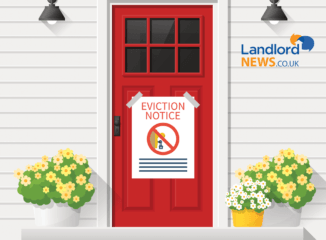New regulations that came into force today mean possession cases in England related to rent arrears can be enforced where the arrears amount to nine months or more of rent built before 23rd March.
Paul Shamplina, founder of Landlord Action, says: “This is very welcome news for those landlords whose tenants had stopped paying rent months prior to the pandemic and, until now, had been given carte blanche to continue living rent free.
“However, there are concerns about how long it will take those landlords, whose arrears cases fall short of the Government’s definition of ‘substantial’, i.e. nine months, to regain possession.”
Landlord Action is currently acting on behalf of dozens of landlords who have severe pre-COVID possession cases. Vanessa Thorn, a landlord whose tenant has not paid rent since November 2018, sought Landlord Action’s help. After a long battle to get to bailiff stage, a date was finally set down for April 2020, only to be cancelled as result of court closures during lockdown. She is now out of pocket by £25,000 in rent plus her legal fees.
Vanessa Thorn comments: “The case has been mentally exhausting. It took until the end of 2019 to get a court order for repossession because the tenant filed a defence of disrepair. We then had to go through the whole process of proving otherwise and then wait a further four months to get a bailiff date, only to have it cancelled.
“It has now been another eight months, and all the while my tenant, who is a business owner in Camden, is living rent free. If we cannot rely on the UK courts to uphold the simple contract signed by the tenant, to pay rent within a reasonable period of time, how can we be expected to operate as landlords in this country?
“Even before COVID, it took too long to gain possession. Landlords do not need any more disincentives. It is the good, honest tenants that will suffer as it means landlords will be far more cautious of who they let to, putting for example, self-employed people, at greater risk of being overlooked. As a landlord, I would always show compassion and help a tenant if I could, but I simply cannot afford to pay rent for someone else for two years.”
Paul Shamplina adds: “Put simply, landlords are not banks or the welfare state. In fact, banks get their money back, but landlords are expected to swallow these losses.
“How is it fair that a landlord should be covering the rent for someone who was already failing to pay rent long before the pandemic started? What’s more, the likelihood of Ms Thorn, or other landlords in a similar situation to her, being able to collect monies owed is very slim.
“Whilst this is a positive step forward, there is a long way to go in clearing the backlog of cases and my concern now is for those landlords who have cases with, for example, seven months of rent arrears prior to March.
“With the current lockdown and then the Christmas amnesty, evictions will not be enforced by bailiffs until 11th January 2021 at the very earliest, so even in the best-case scenario, those landlords will be facing more than 17 months without rent.”
Despite Landlord Action seeing this announcement as welcome news, the National Residential Landlords Association (NRLA) argues that the new regulations are a missed opportunity to help those tenants in financial difficulty due to COVID-19.
Ben Beadle, Chief Executive of the National Residential Landlords Association, said: “In trying to arrive at a compromise, the Government has failed to help those in genuine need whilst rewarding those whose arrears have nothing to do with the pandemic, and in some cases are wilfully not paying their rent.
“This is doing nothing to help those tenants who are trying to do the right thing and seeking to pay off their debts.
“Instead of prolonging the problem with short-term fixes, the Government needs to urgently bring in a financial package to enable tenants to pay off rent arrears.”





